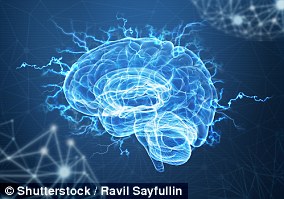Are YOU a ‘superager’? Why you could be missing the key to treating dementia
As we get older, it’s common to forget where you put your keys or get your grandchildren’s names mixed up.
But a select group of people, known as “superagers,” have as good a memory as those thirty years younger.
Now scientists have discovered how to maintain this excellent memory, raising hopes of a treatment for dementia.
As we get older, it’s common to forget where you put your keys or get your grandchildren’s names mixed up. But a select group of people, known as “superagers,” have as good a memory as those thirty years younger
Experts from the Universidad Politécnica de Madrid conducted a five-year study comparing the brain structures of super-agers with those of older adults with typical memory loss.
They found significant structural differences indicating that the integrity of the white matter, which allows brain areas to communicate with each other, was healthier in superagers.
Their findings suggest that superagers better preserve white matter in the brain.
Understanding the mechanisms behind this structural difference could be an important next step in developing treatments to protect memory in those of us who don’t have it naturally, the team said.
Writing in the Journal of Neuroscience, they said: ‘Episodic memory is one of the cognitive abilities more vulnerable to aging.
‘Although memory normally declines with age, some older people may have memory performance comparable to that of people thirty years younger, and this phenomenon is often conceptualized as superaging.
‘Understanding the superager phenotype may provide insight into mechanisms of protection against age-related memory loss and dementia.’
Separate research has also shown that superagers have a thicker area of the brain called the cingulate cortex, which is thought to be important for memory, attention and motivation.
The term “superager” can also refer to someone in their 70s or 80s who has the physical capabilities of their decades-younger colleagues.
Previous studies have shown that older people who regularly exercise at high intensity can have the aerobic capacity of people 30 years younger.
Experts have suggested that embracing mental challenges like crossword puzzles, math games or even assembling flat-packed furniture can increase the chances of becoming a superager.

